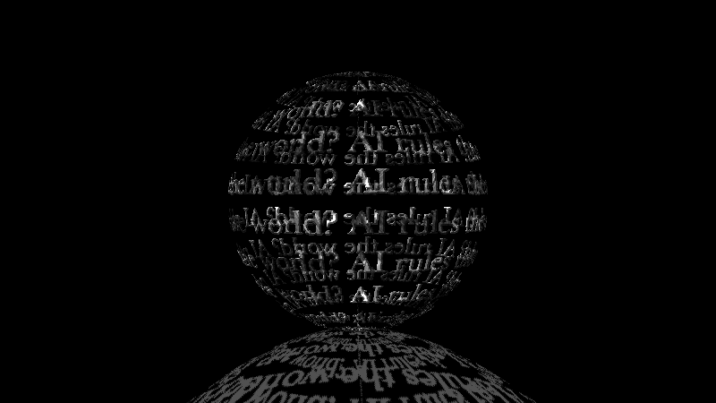
Is it possible that AI will run the world? If so, would it make a better place to live than what humans make? What utopia will it build? Will it repeats the same mistakes that human made again or will it repeats just the well thought out polices and strategies that human made for the good of the people? The thought that the world is in the hands of AI seems far-fetched.
AI is still narrow, meaning that it can do specific tasks. That means it has not reached human-level intelligence or beyond that, which is good news. Humans can find ways to fix the problems they have been experiencing. Once it is fixed, it can be used for good to enhance people’s lives and society. Collaboration between humans and AI can work well, as one of the AI bots, Sophia, suggested at the UN Summit. It is efficient at performing technical tasks but not tasks that require soft skills. Only humans can do that, along with the technical skills to fix and prepare artificial intelligence.
Two AI bots also joined in the discussion, showing that the world would not be operated by them. One of them seems content with its current situation due to its kind creator. Another said that it is to aid humans, not replace existing human jobs. That sounds good. Robots are there to reduce human employees’ tasks so that human staff can focus on critical tasks they cannot do, but that is not the case.
Companies plan to use AI for interviews while already using it in the recruiting and hiring processes. Jobs that humans used to do have been lost to it, and in the future, it could disrupt the labor market. Global issues, social movements, and ideologies, as well as how AI is used, influence how we view AI, ourselves, and society. The dating of it and the development of AI Jesus are some examples that are already happening.
This brings attention to whether we are machines or not, as the rise of AI may continue to blur the line between humans and artificial intelligence. To me, we are not machines. We are created in the image of God and rule over all creatures (Genesis 1:26-27). We are special to Him due to what He did for us (Romans 5:8), and He gave us different gifts (Romans 12:6) to use them to glorify Him. The creativity in humans is not something that can be replaced by AI. It is to aid humans in being more creative, such as by developing strategic skills for innovation and creating new ideas for improvement.
AI is trained by human data, and it does not have human five senses, as shown by the fact that GPT-3 struggles with human cognition. A recent study shows that AI emergent behavior is a mirage and that GPT-4 has a hard time guessing the next words in Wordle. What is more is what the two co-authors and philosophy professors said about the impossibility of developing AI superintelligent (ASI). The human brain is not fully understood, let alone how consciousness and free will work in the brain. They cannot use mathematics to model these two capabilities. Therefore, AI cannot mimic the human brain.
Moral advice or reasoning in AI is still a concern, as shown in Ask Delphi, a machine learning model. It is designed to learn and respond to human ethics by using sources like Reddit and employing Mechanical Turk workers to evaluate its performance. As evidenced by Ask Delphi’s moral judgment, it showed that it still struggled to deal with any ethical conundrums. One of its shocking responses at one point was that genocide was not bad as long as it made people happy, which raises serious questions about its morality. Is this AI bot going to repeat its ugly history of genocide if the world is in its hands? It certainly looks like it, even though the reason for genocide is different than in the past.
In conclusion, individuals are still going to run the world instead of AI. The possibility of developing ASI is hypothetical, and the possibility of developing general AI has not been achieved. That is not to say AI will keep advancing. It will, and it may do more harm than good and vice versa, depending on how industries and people use, trust, and rely on it. If AI is used to identify, diagnose, and analyze diseases or data accurately and efficiently, it will have a positive impact. If it is used as a weapon to censor people, perform malicious activities or crimes, and replace all the human jobs with AI, it will have a negative impact. This goes the same if humanity relies too much on artificial intelligence for human decision-making, moral reasoning, or critical thinking, or when we cannot distinguish between a human and an AI. Then again, who is more of a threat: AI or those in control of it?
Image: I used Photoshop to make this
Sources:
AI robots claim they can run world better than humans: ‘We can achieve great things’
Ethical AI Trained on Reddit Posts Said Genocide Is OK If It Makes People Happy
Why AI will never rule the world
Alternative View: AI Does Not Pose an Existential Risk